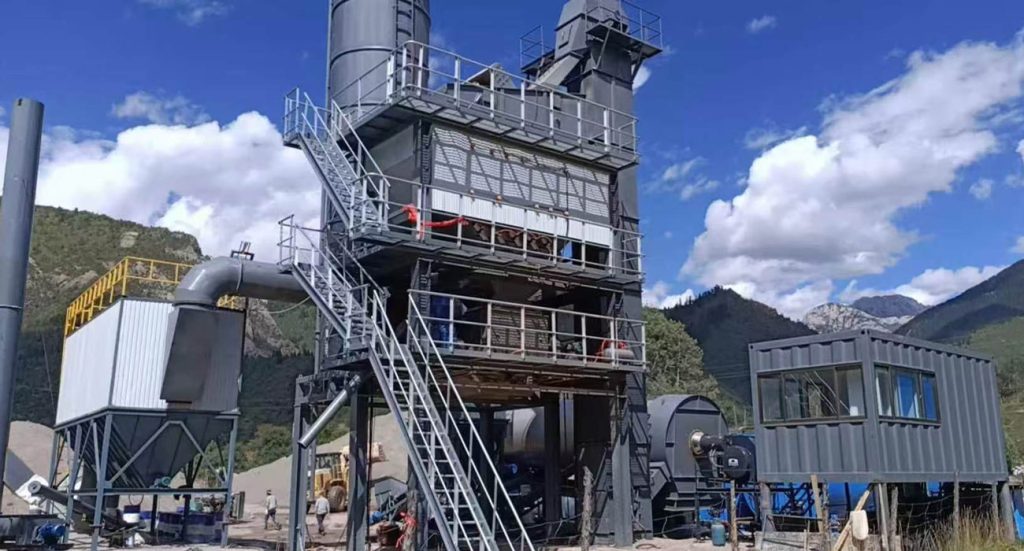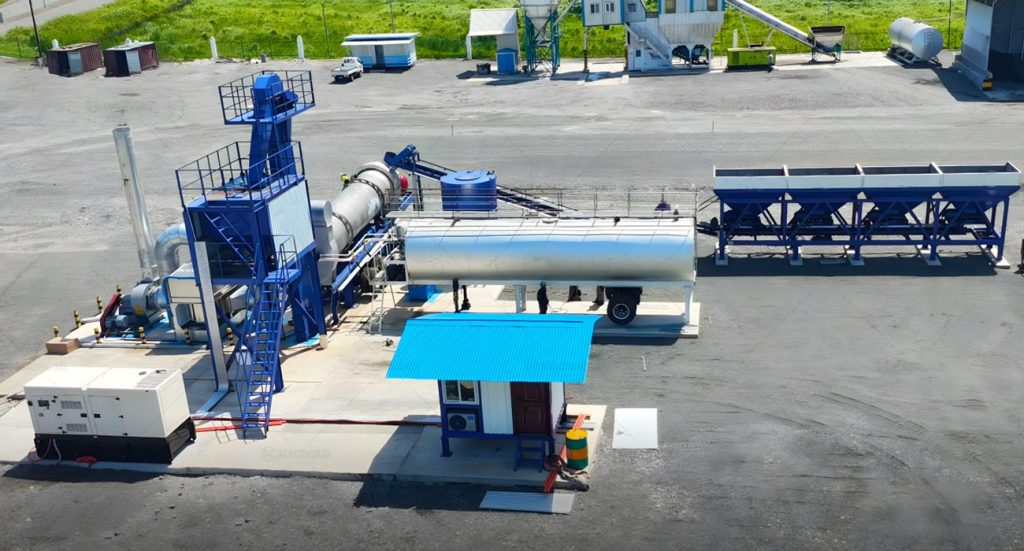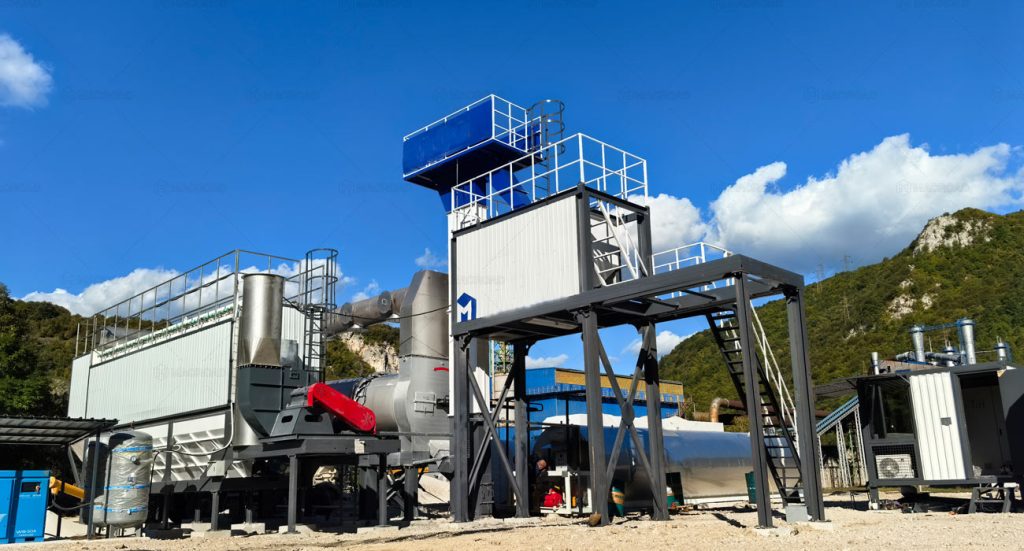When executing a “rural multi-village road repair” project, selecting the appropriate asphalt production equipment is crucial for meeting specific mixture requirements efficiently. Mobile drum mix plants focus on “continuous production,” making them suitable for scenarios requiring consistent, small-batch material supply. In contrast, mini asphalt mixing plants and mini portable asphalt plants typically operate on a batch production model, which is better suited for multi-specification and small-batch needs. Understanding these differences in production modes and adaptability is key to optimizing project execution.

Understanding Material Supply Rhythm and Specification Quantity
The first step in selecting the right equipment is to analyze the “material supply rhythm” and “specification quantity” for each village involved in the project. Each village will likely require different types of mixtures, such as subgrade materials and surface course asphalt. For instance, if one village requires continuous subgrade material supply, a mobile drum mix plant may be ideal due to its ability to produce materials consistently without interruption.
Conversely, if another village needs multiple specifications of asphalt mixtures, using mini asphalt mixing plants or mini portable asphalt plants would be more beneficial. These plants can produce different mixtures in smaller batches, accommodating varying requirements effectively. Evaluating the specific needs of each village allows project managers to align equipment selection with production demands.

Choosing the Right Equipment Combination
In many cases, a combination of equipment may provide the best solution for rural road repairs. For example, employing mini portable asphalt plants for multi-specification repair materials allows flexibility in responding to the diverse needs of each village. These plants excel in producing different types of mixtures on demand, ensuring that the right materials are available when needed.
At the same time, mobile drum mix plants can be utilized for producing a single-specification subgrade material, ensuring a steady supply for foundational work. This dual approach balances the need for continuous production with the flexibility required for varied asphalt mixtures, enhancing overall project efficiency.

Advantages of Using Macroad Equipment
When considering equipment for rural projects, Macroad offers a range of options that cater to both continuous and batch production needs. Their mobile drum mix plants are designed for high efficiency, while their mini asphalt mixing plants and mini portable asphalt plants provide versatility for multi-specification requirements. By choosing Macroad equipment, project managers can benefit from reliable performance and tailored solutions that meet the unique challenges of rural road repairs.
Ensuring that the selected equipment aligns with the specific requirements of each village is vital. This alignment avoids inefficiencies that may arise from mismatching production modes with project demands, ultimately supporting successful project execution.
Conclusion
In conclusion, selecting the appropriate equipment for rural multi-village road repair projects involves a careful evaluation of material supply rhythms and specification quantities. Mobile drum mix plants are ideal for continuous subgrade material production, while mini asphalt mixing plants and mini portable asphalt plants are suited for producing varied mixtures. By considering a combination of these equipment types, project managers can optimize production efficiency and meet the diverse needs of each village. Utilizing reliable options like Macroad ensures that the project runs smoothly and effectively, leading to successful road repairs in rural areas.